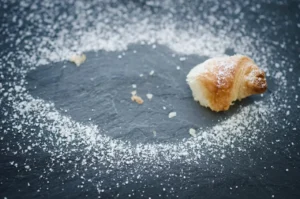It’s easy to get confused when it comes to what is healthy for you and what is ultimately going to derail you from being on the path towards living your healthiest life.
With so much advice out there in regards to health and nutrition, you may find yourself stumbling around trying to create a plan dedicated to your health only to end up overwhelmed and frustrated.
And to make matters worst, even experts and qualified health professionals often have differing opinions!
Yet all of this aside, there are many health and nutrition tips that are proven to work because they are backed up by extensive research.
In fact, health experts and dietary professionals both agree that this one toxin, consumed by all of us on a daily basis, is one of the most harmful substances we can put into our bodies.
This culprit is often responsible for heart disease, liver disease and obesity but it also wreaks havoc on our brain and heart’s ability to function at its best.
Can you guess what that toxin is?
You probably figured it out: SUGAR!
It should come as no surprise that eliminating sugar from your diet brings many different benefits. Not only will it help you shed weight if you’re trying to trim down or tone up, but it will decrease your risks of heart disease, diabetes and liver disease.
In fact, Canada’s Heart & Stroke says: ” consume no more than 10% total calories per day from added sugars, and ideally less than 5%; that is, for an average 2,000 calorie-a-day diet, 10% is about 48 grams (or 12 teaspoons) of added sugars. One can of pop contains about 85% (or approx. 10 teaspoons) of daily added sugar”.
Sugar also affects the pH levels in your body which will impact the way your heart and brain works. It offers no nutritional value and instead is calorie-dense.
In fact, studies have shown that people who consume high-levels of fructose are in great danger of developing fatty liver disease because of the way excess sugar ends up stuck to your organs rather than being eliminated from your body.
And if you’re struggling to lose weight, sugar will mess with your chances at staying on track with your diet because it leads to intense cravings!
When sugar enters your system it triggers your sweet receptors which sends a signal to your brain in the way of a “feel good hormone” (like serotonin and dopamine).
This signal messes with your chemical pathways and causes intense cravings, which often triggers us to want to eat more sugar. Ultimately, this cycle can lead to sugar addiction.
So do your best to minimize your sugar intake so that you’re able to prime your system to run at its very best while reducing cravings and minimizing the many risks that sugar brings.
Take it one day at a time. Here are a few ways to get
started:
- Read all packaging carefully. Sugar comes in many different forms and under many different names, including: glucose, maltose, sucrose, fructose, raw sugar and corn syrup.
- Replace sugary drinks with water and lemon. Start replacing the number of sugary drinks including fruit juices with lemon water. It’ll keep you hydrated while quenching your thirst and reduce cravings.
- Eat raw fruit. Instead of loading up on sugar-heavy foods and drinks, eat raw fruits like apples, strawberries or grapes.
Fruit is naturally sweet but they also carry a lot of beneficial nutrients and fiber that will help you get your fix without risking your health.


